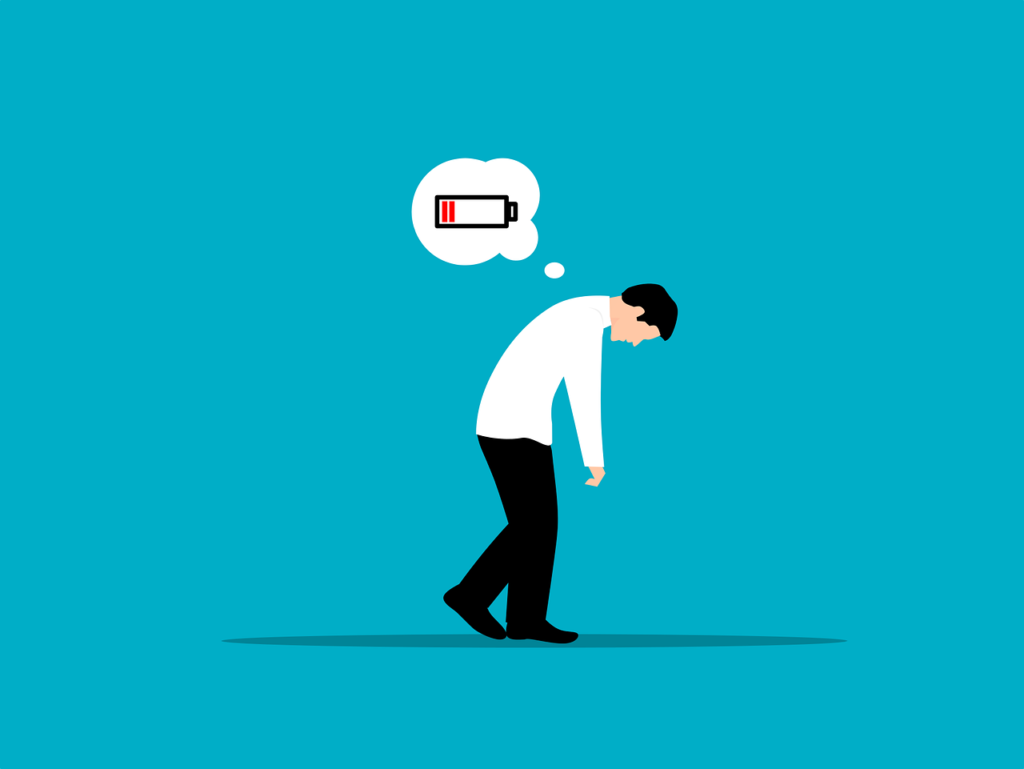
Life can get really hard. We all have moments when we feel like our life sucks, when life seems pointless, and we wonder why it feels like life is against us. We might even question if life seems so depressing or why things keep getting worse. I’ve been through those feelings too, and currently, I’m still dealing with them because I haven’t found a job in three months.
Sometimes, these tough times are short, lasting only a few days. Other times, they can stretch out for much longer, even for months or years.
I get how tough these times can be. I’ve had times in my own life when everything just felt wrong for no clear reason.
The most difficult part about being stuck in this kind of situation is not knowing when it will improve or how to make it better. But I want you to know that even during these challenging moments, there are things you can do to make your situation better and get your life back on track.
Why life sucks?
Feeling like your life is difficult or unsatisfying can be influenced by a variety of factors, both internal and external.
To understand your struggle, it’s a good idea to write down your thoughts. Write just about everything that pops in your mind. Ask yourself a question, “Why do I feel this way?”
Is it because:
- You are stuck in traffic and you think, “I’ll be here forever, my life sucks”.
- After overeating late at night, you said, “I have no self-control. My life is a mess.”
- You see someone’s vacation photos and think, “Everyone’s having fun except me. My life is so boring”.
You get it. These exaggerated reactions often happen in the heat of moment and that doesn’t mean your life is a disaster.
Or is it because:
- You feel so anxious and lost about your job and dreaded to go to work?
- You feel so isolated and lonely for extended period of time?
This is helpful because:
- Writing things down makes you face your issue directly.
- It helps you break down problems, and it lets you look at your challenges in a fair way.
- You can also look at and compare your notes later and see how much you’ve improved.
Factors that can contribute to a sense that life isn’t going well
Mental Health Challenges
Conditions like depression, anxiety, or other mental health disorders can significantly impact your perception of life. These conditions can distort your thoughts, emotions, and overall outlook.
Unfulfilled Goals and Dreams
If you’re not making progress toward your personal, academic, or career goals, you might feel a sense of stagnation or frustration.
Relationship Issues
Difficulties with friends, family, romantic partners, or colleagues can lead to feelings of isolation, loneliness, and dissatisfaction. Maybe you are married to someone you don’t love and you mutually suck life out of each other.
Financial Strain
Having trouble with money, like debts or not having a job, can make you feel worried and affect how you feel about life.
Health Problems
Dealing with long-lasting sickness, pain, or being unable to do things because of health issues can make life feel not so good. Not taking care of your health can also affect how you feel.
Social Comparisons
If you always compare yourself to others, especially on social media, it might make you feel like you’re not good enough.
No one to lean on
Feeling like you don’t have anyone to talk to or spend time with can make you feel alone and sad.
Trauma or Loss
Experiencing a significant loss or trauma, such as the death of a loved one, divorce, or other life-altering events, can profoundly impact your emotions and outlook on life.
Unfulfilling Job or Routine
Your job sucks life out of you. Spending a significant amount of time in an unfulfilling job or daily routine can lead to a sense of monotony and dissatisfaction.
Thinking negatively
Sometimes, thinking in a negative way can make everything seem worse than it actually is.
Bad Environment
Living in an unsafe or uncomfortable environment, facing discrimination, or dealing with other external stressors can contribute to negative feelings about life.
Feeling lost
Not knowing what your life is about or feeling like it doesn’t have a purpose can make you feel empty.
Bad ways to cope
Turning to substances like alcohol or drugs to cope with emotional distress can exacerbate negative feelings.
More factors:
- You’re always hearing advice about how to live your life from others.
- Figuring out what truly makes you happy is a bit confusing.
- Ignoring your passions and interests can contribute to a lack of fulfillment.
- Letting fear of failure hold you back prevents you from exploring new opportunities.
- Instead of concluding that your life sucks, figuring out why you feel that way more specifically would be more helpful.
How to feel better?
Rewrite your story
We all have our own stories that shape how we see the world and ourselves. But sometimes our inner voice gets it wrong.
Not only writing about challenges can help you analyze them and find solutions, but it can also help you see situations from a different, more positive angle.
When you write about your experiences, especially challenging ones, it can help you process and make sense of them. This can lead to a better understanding of yourself and your life. Writing can also act as a tool for self-compassion, where you offer yourself understanding and support.
Here is a simple guide on how to write your experiences to help process and make sense of them:
- Find a quite space. Choose a quiet and comfortable place where you can focus without distractions.
- Set a timer. Set a timer for around 10 to 15 minutes. This is a good starting point, but feel free to adjust it based on your comfort level.
- Choose a topic. Think about a challenging experience you want to explore. It could be something recent or from the past. It might be a problem, a difficult emotion, or a situation that bothered you.
- Start writing. Begin writing about the experience. Write freely without worrying about grammar or structure. Just let your thoughts flow onto the paper.
- Express your feelings. Describe how you felt during that experience. Be honest and don’t hold back. Write about any emotions, thoughts, or reactions you had.
- Reflect on the experience: After writing about the situation, take a moment to reflect. What did you learn from this experience? How did it make you feel? What thoughts came up?
- Offer self-compassion: write a compassionate and supportive message to yourself. Imagine you are giving advice to a friend who went through a similar situation. Be kind and understanding in your words.
- Wrap up: Once the timer goes off, read what you’ve written. Remember, this is for your eyes only, so don’t worry about how it sounds.
- Repeat if needed. You can do this exercise regularly, focusing on different experiences or emotions. Over time, you might notice patterns, insights, or shifts in your perspective.
If the steps above too long, here is a shorter step.
- Write a short story about your problem. For example, “I’m having money issues”, or “I’ll never find love”
- Now write a new story as if you were a neutral person watching, or like you were giving advice to a friend. You might say, “Money is a challenge, but you can work on improving your finances”, or “Don’t stress about finding love. Focus on meeting new people and having fun. Love will come naturally.”
By writing and then changing our stories, we can change how we think about ourselves and find out what’s stopping our well-being.
Spend time outdoors and soak up vitamin D from the sun

Studies reveal that spending time outdoors can alleviate stress. Inhaling fresh air and basking in natural light can elevate your mood. Adding in some physical activity, like going for a walk, can amplify these positive effects.
Immersing yourself in nature and get a little bit of sunlight. Sunlight helps your body produce vitamin D, which is good for your health. Just a little sun exposure can make you feel better and boost your mood.
Maybe go for a relaxed walk with your dog or visiting a nearby park. You can have a great time reading your favorite book or listening to a podcast while enjoying your stroll.
Boost your mood with movement
Moving your body can do wonders for both your physical and mental well-being. It can be as simple as standing up, doing stretches, completing a small chore like folding laundry, or going for a walk with your dog.
Research suggests that physical activity, like walking or simple jogging, can increase the release of dopamine, a “feel-good” chemical in your brain.
Feeling down about life sometimes occurs when we’re overwhelmed by tasks. Occasionally, the simple act of stretching your body and taking a shower can provide the motivation you need to tackle the rest of your to-do list.
Limit screening time

Reducing the time you spend on screens, especially social media, can contribute to better mental well-being. Excessive screen time, particularly comparing yourself to others, can lead to unhappiness.
In addition, constant exposure to news, updates, and notifications can overwhelm your mind and increase stress.
Swap screen time for physical activity. Whether it’s going for a walk, doing yoga, or dancing, exercise can release endorphins, which are natural mood enhancers.
Use your screen-free time to explore creative hobbies like drawing, writing, or playing a musical instrument. Engaging in such activities can boost your mood and confidence.
Here are some simple and effective action steps to reduce screen time:
- Change your phone screen to black and white. This might make you use your phone less because colors won’t attract you as much.
- Turn off notifications: Disable non-essential notifications such as from social media app. The world will still run without you checking the app.
- Practice the 20-20-20 Rule: Every 20 minutes, take a 20-second break and focus on something 20 feet away to reduce eye strain and screen time.
Create a plan to achieve your goals – ask yourself “where do I go now?”
Here is a simple yet effective guide to create a plan.
- Choose one thing you want to achieve, like getting better at a hobby or finishing a project.
- Divide your big goal into smaller, doable steps. This makes it less overwhelming.
- Set a timeline. Decide when you want to finish each small step. Having a timeline keeps you on track.
- Stay realistic. Make sure your steps and timeline are possible.
Here’s an example: Let’s say you want to walk 6000 steps four times a week. Start with something simple like walking 3000 steps twice a week. Keep it easy at first and gradually make it more challenging. Remember, doing a little is better than doing nothing. For instance, even five push-ups a day is a step in the right direction.
Taking one step at one day
Imagine you have a big puzzle to solve. Instead of trying to put all the pieces together at once, you start with one piece. In life, when things feel overwhelming, focus on small actions you can do today. It’s like taking one step at a time up a staircase. Each step brings you closer to your goal. By doing this, you can avoid feeling stressed and enjoy a sense of achievement each day.
For example, if you are unhappy because of your financial situation, maybe you could reduce your expenses. Take 15 minutes to go through your credit card expenses. From there you can perhaps find subscription you never used. Next step, maybe look for cheaper internet.
If you feel lost in your career, maybe you could start taking interesting classes. The key here is take a small and consistent step every day.
As we work towards our goals and see ourselves making headway, we tend to feel happier and more content with our lives.
Embrace responsibility
When things don’t go as planned, it’s natural to want to blame someone or something else.
For instance, you might think it’s your partner’s fault for not encouraging you to go to college, your parents’ fault for not helping you explore your options, or your friend’s fault for not believing in your dreams.
But here’s the thing: while others can influence us, our choices are still our own. Pointing fingers won’t make things better; it only uses up our time and energy.
The brighter path is to take full responsibility for your life, even when you face challenges.
While some things may be beyond our control, there are many aspects, like how we spend our time, that we can actually manage.
“Your life is your story. Write well. Edit often.” – Susan Statham
Give yourself some credit and celebrate small wins
Just like how you find things to be thankful for in your life, it’s also a good idea to take a moment to recognize the progress you’ve made.
Even if you’re feeling stuck right now, there are probably many positive things you’ve achieved that you’re not remembering.
It’s common to forget how much you’ve improved. I do this too sometimes.
There are days when I feel like I’m not really moving forward or accomplishing anything important. But usually, someone has to remind me that I’ve actually achieved more than I’m giving myself credit for, and I’ve worked hard to do it.
Imagine you had a really important task to finish by the end of the day, and you didn’t manage to complete it. You might start feeling like you failed. However, if you take a moment to think about it, you’ll realize that you did accomplish some smaller tasks like washing dishes and making a draft for your writing. Remembering all the things you did achieve help shift your attention away from negativity and it motivates you.
So, give yourself the recognition you deserve for the effort you’ve put in and the progress you’ve made in your life!
Even the little achievements deserve recognition. Celebrate the small victories in your day-to-day life.
Accept that life is a journey.
Life is like a roller coaster. It has exciting highs and challenging lows. Just as a roller coaster goes up and down, life has moments that make you happy and tough times.
Embracing this idea can make the tough moments easier to handle. Imagine you’re on a journey, and sometimes the road is bumpy. When things are tough, remind yourself that this is part of the journey, and smoother times will come.
Be gentle with yourself and realize that many things are beyond your control.
Connecting with your favorite person
Being around people who care about you can boost your mood and make you feel less alone. It’s like having a support team.
Picture your family and friends as a safety net. They’re like a group of people who care about you and want the best for you. Just like how you might play a game with your friends, spending time with them can make you feel better.
Imagine you’re feeling down. Instead of keeping it to yourself, you can reach out to a friend or family member. They listen, share their thoughts, and suddenly you’re not facing your feelings alone.
Engage in Activities You Love
Think back to your favorite activity from when you were a child. Remember the excitement it brought? Revisiting those childhood activities can not only rekindle that joy but also help you escape from negative thoughts.
Whether it’s drawing, playing an instrument, or building things, these activities can be a refreshing way to shift your focus and brighten your day.
Regular sleep schedule
Getting enough sleep is crucial for your mental and emotional well-being. Research shows that inadequate sleep can lead to increased irritability, low mood, and a negative impact on your overall perspective on life. The general recommendation is 7-8 hours for adult (18-64 years).
Ensure that you have a regular sleep routine, where you go to bed and wake up at the same time each day. This practice helps regulate your body’s internal clock, known as the circadian rhythm, and can significantly improve the quality of your sleep.
Get help from professionals and support group
Getting professional help can make a big difference. They can help you to understand your actual problem, and they can also help to correct if you have any thinking mistakes that prevent you from making meaningful progress.
Joining support group can also be super helpful. Being in a group shows you’re not the only one facing challenges. It makes you feel less isolated and more connected. In a group, you can also learn how others have overcome similar struggles. It gives you new ideas to handle your struggle.
Common cognitive distortion (or thinking mistakes)
Our brain leans towards negatives
There’s a professor named Clifford Nass from Stanford University who found something interesting. He discovered that we often think a lot about bad things that happen and we use strong words to talk about them. But when it comes to good things, we don’t think about them as much.
This happens because our brains naturally pay more attention to negative stuff. It’s like our brains are wired to focus on problems and worries. This probably goes back to our old instincts when we needed to watch out for dangers to survive.
There’s a way to balance this out. When something good happens, try to really notice it and talk about it in a positive way. This can help your brain focus on good things more too! It’s like training your brain to see the bright side of life.
You can also try gratitude journal. Every day or once in two days, write down a few things that you are thankful or that made you happy.
Labeling
Labeling in psychology means giving things or situations names or titles based on how you feel about them. For example, if you make a mistake and immediately think of yourself as a “failure,” that’s labeling.
Instead of thinking, “I made a mistake,” you label yourself as “incompetent” or “a failure.” This labeling intensifies the negative emotions associated with the mistake and affects your self-esteem.
Start by giving names to your thoughts. It might seem a bit strange, but with practice, it becomes more natural and easier.
Instead of saying things like “life sucks” or “the universe hates me,” you can try this:
- I’m having thoughts that life sucks
- I’m having thoughts that my life is pointless
This helps you recognize your thoughts pattern. Furthermore, it helps you see from a different angle and know that just because you think something, it doesn’t have to be try.
More strategy to reduce this habit, try:
- Question the Labels: Ask if those names are really true or if they’re making things seem worse.
- Be Kind to Yourself: Treat yourself nicely, like you would a friend. Making mistakes is normal.
- Change the Words: Instead of harsh labels, use gentle words to describe what’s happening.
- Find Solutions: Focus on fixing the problem rather than blaming yourself.
Overgeneralizing
Overgeneralization means taking one bad experience and thinking that it will happen all the time, even in different situations.
For example, if you fail a test, you might start thinking, “I’m terrible at everything.” This is overgeneralizing because you’re using one failure to describe your entire ability.
Humans tend to do this because our brains try to make things simple. We remember strong emotions, like feeling really bad about failing, and our brain wants to protect us from feeling that way again. So, it makes us believe that everything will go wrong even when it might not.
When you notice you’re doing it, challenge your thoughts. Ask yourself if that’s really true and find times when things didn’t go wrong.
Learn more about other cognitive distortions
Closing words
Life can be tough, and there are moments when we feel like everything is going wrong. But remember, there are practical steps you can take to make things better. Instead of thinking that life sucks, try to understand why you feel this way. Writing down your thoughts can help you see things more clearly.
Factors like mental health challenges, unfulfilled goals, relationship issues, financial strain, health problems, and more can contribute to feeling down. But you can change your perspective and improve your well-being. Spend time outdoors, engage in activities you love, and prioritize sleep for a better mood. Limit screen time, rewrite your story, and take small steps towards your goals.
It’s important to be kind to yourself and accept that there are things beyond your control. Life has ups and downs, like a roller coaster. Connecting with people who care about you and seeking professional help can make a big difference.
Watch out for common thinking mistakes like overgeneralizing and labeling yourself negatively. Remember, your brain tends to focus on negatives, but you can train it to notice the good things too.
Life may have its challenges, but by taking these steps and changing your mindset, you can find ways to make it better. Remember, you have the power to shape your own story and improve your well-being.

Vi, a software engineer with a keen interest in personal finance, had planned to retire once she reached her lean FI/RE (Financial Independence/Retire Early) goal. However, after achieving the goal, she took few months of a mini-retirement filled with travel and adventure and decided to continue her career.
For the past five years, Vi has been using Personal Capital (Empower), a free financial tool. Her favorite features include the dashboard for net worth, allocation, and planning, which help track her FI/RE goal and keep those investment fees in check.

